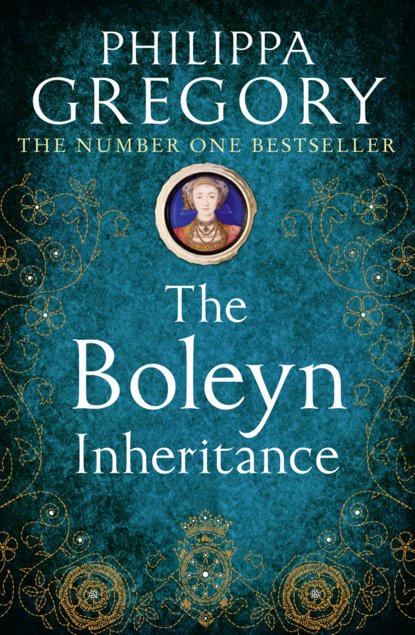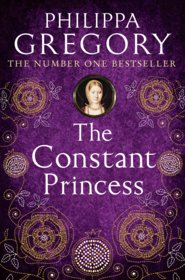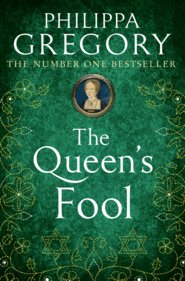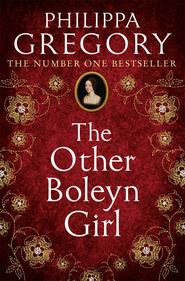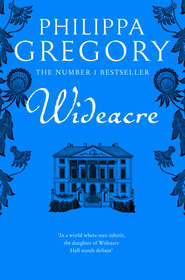По всем вопросам обращайтесь на: info@litportal.ru
(©) 2003-2025.
✖
The Boleyn Inheritance
Автор
Год написания книги
2019
Настройки чтения
Размер шрифта
Высота строк
Поля
Not that I will speak so much as one word against my brother, nothing now, and nothing in the years to come. I will never say anything against him. He is a model son to my mother, and a worthy successor to the dukedom of Cleves. During the last months of my poor father’s life, when he was clearly as mad as any fool, it was my brother who wrestled him into his chamber, locked the door from the outside and publicly gave out that he had a fever. It was my brother who forbade my mother to summon physicians or even preachers to expel the devils that occupied my poor father’s wandering brains. It was my brother, cunning – like an ox is cunning, in a slow mean way – who said that we must claim my father was a drunkard rather than allow the taint of madness to diminish our family reputation. We will not make our way in the world if there is suspicion against our blood. But if we slander our own father, call him a sot, having denied him the help that he so desperately needed, then we may yet rise. This way I will make a good marriage. This way my sister will make a good marriage. This way my brother can make a good marriage and the future of our house is assured, even though my father fought his demons alone, and without help.
Hearing my father whimper at the door of his chamber that he was a good boy now, and would we let him out? Hearing my brother answer so steadily and so firmly that he could not come out, I wondered then if actually we had it all wrong, and my brother was already as mad as my father, my mother too, and the only sane one in this household was me, since I alone was dumb with horror at what we were doing. But I didn’t tell anyone that thought, either.
Since my earliest childhood I have served under my brother’s discipline. He was always to be duke of these lands sheltered between the rivers of the Meuse and the Rhine. A small enough patrimony; but one so well-placed that every power of Europe seeks our friendship: France, the Hapsburg Spanish and Austrians, the Holy Roman Emperor, the Pope himself, and now Henry of England. Cleves is the keyhole to the heart of Europe, and the Duke of Cleves is the key. No wonder that my brother values himself so highly, he is right to value himself so highly; it is only I who sometimes wonder if he is not, in truth, a petty princeling seated below the salt at the grand banquet which is Christendom. But I tell no-one I think this, not even my sister Amelia. I do not trust anyone very readily.
He commands my mother by right of the greatness of his position in the world and she is his Lord Chamberlain, his Major Domo, his Pope. With her blessing, my brother commands my sister and myself because he is the son and the heir and we are burdens. He is a young man with a future of power and opportunity and we are young women destined to be either wives and mothers at the very best; or spinster-parasites at the worst. My older sister Sybilla has already escaped; she left home as soon as she could, as soon as her marriage could be arranged, she is now free of the tyranny of fraternal attention. I have to go next. It has to be me next. I must be freed. They cannot be so pointlessly cruel to me to send Amelia in my place. Her chance will come, her time will come. But I am the next sister in line, it has to be me. I cannot imagine why they even offered Amelia, unless it was to frighten me into greater subservience. If so, it has worked. I am terrified that I will be overlooked for a younger girl, and my brother has let this come about. In truth, he ignores his own best interests to torment me.
My brother is a petty duke, in every sense of the word. When my father died, still whispering for someone to open the door, my brother stepped into his shoes but can never fill them. My father was a man in the wider world, he attended the courts of France and Spain, he travelled in Europe. My brother, staying at home as he has done, thinks that the world can show him nothing greater than his own duchy. He thinks there is no greater book than the Bible, no better church than one with bare walls, no better guide than his own conscience. With only a small household to rule, his command falls very heavily on very few servants. With only a small inheritance, he is alert to the needs of his own dignity, and I, who lack dignity, feel the full weight of his. When he is drunk or happy he calls me the most rebellious of his subjects and pets me with a heavy hand. When he is sober or irritated he says that I am a girl who does not know her place and threatens to lock me in my room.
This is no empty threat in Cleves today. This is a man who locked up his own father. I think he is quite capable of imprisoning me. And if I cried at the door, would anyone let me out?
Master Holbein indicates to me with one curt nod of his head that I can leave my seat and my sister can take my place. I am not allowed to look at my portrait. None of us may see what he sends to the king in England. He is not here to flatter us, nor paint us as beauties. He is here to sketch as accurate a representation as his genius can produce, so that the King of England can see which of us he would like, as if we were Flanders mares coming to the English stallion at stud.
Master Holbein, who leans back as my sister bustles forwards, takes a fresh sheet of paper, examines the point of his pastel crayon. Master Holbein has seen us all, all of the candidates for the post of Queen of England. He has painted Christina of Milan and Louise of Guise, Marie of Vendôme and Anne of Guise. So I am not the first young woman whose nose he has measured with his crayon held at arm’s length and one eye squinting. For all I know, there will be another girl after my sister Amelia. He may stop off in France on his way home to England to scowl at another simpering girl and capture her likeness and delineate her faults. There is no point in my feeling demeaned, like a piece of fustian laid out for the pattern, by this process.
‘Do you not like being painted? Are you shy?’ he asked me gruffly as my smile faded when he looked at me like a piece of meat on the cook’s draining slab.
I did not tell him what I felt. There is no sense in offering information to a spy. ‘I want to marry him,’ was all I said. He raised an eyebrow.
‘I just paint the pictures,’ he remarked. ‘You had better tell your desire to his envoys, Ambassadors Nicholas Wotton and Richard Beard. No point telling me.’
I sit in the window-seat, hot in my best clothes, constricted by a stomacher pulled so tight that it took two maids hauling on the laces to get it knotted, and I will have to be cut free when the picture is finished. I watch Amelia put her head on one side and preen and smile flirtatiously at Master Holbein. I hope to God that he does not like her. I hope to God that he does not paint her as she is, plumper, prettier than me. It does not really matter to her whether or not she goes to England. Oh! It would be a triumph for her, a leap from being the youngest daughter of a poor duchy to Queen of England, a flight that would lift her and our family and the whole nation of Cleves. But she does not need to get away as I need to get away. It is not a matter of need for her, as it is for me. I might almost say: desperation.
I have agreed not to look at Master Holbein’s painting and so I do not look. One thing is true of me: if I give my word on something I keep it, although I am only a girl. Instead, I look out of the window, into the courtyard of our castle. The hunting horns sound in the forest outside, the great barred gate swings open, the huntsmen come in, my brother at their head. He glances up to the window and sees me before I can duck back. At once I know that I have irritated him. He will feel that I should not be at the window, where I can be seen by anyone in the castle yard. Although I moved too fast for him to see me in any detail, I feel certain that he knows that I am tightly laced and that the square neckline of my gown is low cut, though a muslin neckpiece covers me to my very chin. I flinch from the scowl that he shoots up to the window. Now he is displeased with me, but he will not say so. He will not complain of the gown that I could explain, he will complain of something else, but I cannot yet know what it will be. All I can be sure of is that sometime today or tomorrow, my mother will call me to her room, and he will be standing behind her chair, or turned away, or just entering the door, as if it were nothing to do with him at all, as if he were quite indifferent, and she will say to me, in tones of deep disapproval: ‘Anne, I hear that you have …’ and it will be something which happened days ago, which I have quite forgotten, but which he will have known and saved up until now, so that I am in the wrong, and perhaps even punished, and he will not say a word about seeing me, sitting in the window, looking pretty, which is my real offence against him.
When I was a little girl, my father used to call me his falke, his white falcon, his gyrfalcon, a hunting bird of the cold northern snows. When he saw me at my books or at my sewing he would laugh and say, ‘Oh, my little falcon, mewed up? Come away and I shall set you free!’ and not even my mother could stop me running from the school room to be with him.
I wish now, I so wish now, that he could call me away again.
I know that my mother thinks that I am a foolish girl, and my brother thinks worse; but if I were Queen of England the king could trust me with my position, I would not break into French fashions or Italian dances. They could trust me, the king could trust his honour to me. I know how important is a man’s honour, and I have no desire to be anything but a good girl, a good queen. But I also believe that however strict the King of England, I would be allowed to sit in the window of my own castle. Whatever they say of Henry of England, I think he would tell me honestly if I offended him, and not order my mother to beat me for something else.
Katherine, Norfolk House, Lambeth, July 1539 (#ulink_9198602d-3d8b-5ed4-87fa-36a11bd47773)
Now let me see, what do I have?
I have a small gold chain from my long-dead mother that I keep in my special jewellery box, sadly empty but for this one chain; but I am certain to get more. I have three gowns, one of them new. I have a piece of French lace sent by my father from Calais. I have half a dozen ribbons of my own. And, more than anything else, I have me. I have me, glorious me! I am fourteen today, imagine that! Fourteen! Fourteen, young, nobly born though, tragically, not rich; but in love, wonderfully in love. My lady grandmother the duchess will give me a gift for my birthday, I know she will. I am her favourite and she likes me to look well. Perhaps some silk for a gown, perhaps a coin to buy lace. My friends in the maids’ chamber will give me a feast tonight when we are supposed to be asleep; the young men will tap their secret signal on the door, and we will rush to let them in and I will cry, ‘oh, no!’ as if I wanted it to be just girls alone, as if I am not in love, madly in love, with Francis Dereham. As if I haven’t spent all day just longing for tonight, when I shall see him. In five hours from now I will see him. No! I have just looked at my grandmother’s precious French clock. Four hours and forty-eight minutes.
Forty-seven minutes.
Forty-six. I really am amazed at how devoted I am to him, that I should actually watch a clock tick down the time until we are together. This must be a most passionate love, a most devoted love, and I must be a girl of really unusual sensitivity to feel this deeply.
Forty-five; but it’s dreadfully boring, just waiting, now.
I haven’t told him how I feel, of course. I should die of embarrassment if I had to tell him myself. I think I may die anyway, die for love of him. I have told no-one but my dearest friend Agnes Restwold, and sworn her to secrecy on pain of death, on pain of a traitor’s death. She says she will be hanged and drawn and quartered before she tells anyone that I am in love. She says she will go to the block like my cousin Queen Anne before she betrays my secret. She says they will have to pull her apart on the rack before she tells. I have told Margaret Morton as well and she says that death itself would not make her tell, not if they were to fling her in the bear pit. She says they could burn her at the stake before she would tell. This is good because it means that one of them is certain to tell him before he comes to the chamber tonight, and so he will know that I like him.
I have known him for months now, half a lifetime. At first I only watched him but now he smiles and says hello to me. Once he called me by name. He comes with all the other young men of the household to visit us girls in our chamber, and he thinks he is in love with Joan Bulmer, who has eyes like a frog and if she were not so free with her favours, no man would ever look twice at her. But she is free, very free indeed; and so it is me that he does not look twice at. It isn’t fair. It’s so unfair. She is a good ten years older than me and married and so she knows how to attract a man, whereas I have much still to learn. Dereham is more than twenty as well. They all think of me as a child; but I am not a child, and I will show them. I am fourteen, I am ready for love. I am ready for a lover, and I am so in love with Francis Dereham that I will die if I don’t see him at once. Four hours and forty minutes.
But now, from today, everything must be different. Now that I am fourteen, everything is certain to change. It has to, I know it will. I shall put on my new French hood and I shall tell Francis Dereham that I am fourteen and he will see me as I truly am: a woman now, a woman of some experience, a woman grown; and then we shall see how long he stays with old froggy face when he could come across the room to lie in my bed instead.
He’s not my first love, it is true; but I never felt anything like this for Henry Manox and if he says I did, then he is a liar. Henry Manox was well-enough for me when I was a girl just living in the country, a child really, learning to play the virginal and knowing nothing of kissing and touching. Why, when he first kissed me I didn’t even like it very much, and begged him to stop, and when he put his hand up my skirt I was so shocked I screamed aloud and cried. I was only eleven years old, I couldn’t be expected to know the pleasures of a woman. But I know all about that now. Three years in the maids’ chamber has taught me every little wile and play that I need. I know what a man wants, and I know how to play him, and I know when to stop too.
My reputation is my dowry – my grandmother would point out that I have no other, sour old cat – and no-one will ever say that Katherine Howard does not know what is due to her and her family. I am a woman now, not a child. Henry Manox wanted to be my lover when I was a child in the country, when I knew next to nothing, when I had seen nobody, or at any rate nobody that mattered. I would have let him have me too, after he had bribed and bullied me for weeks to do the full deed, but in the end it was he that stopped short for fear of being caught. People would have thought badly of us since he was more than twenty and I was eleven. We were going to wait till I was thirteen. But now I live in Norfolk House in Lambeth, not buried in Sussex, and the king himself could ride past the door any day, the archbishop is our next-door neighbour, my own uncle Thomas Howard, the Duke of Norfolk, calls with all his great train, and he once remembered my name. I’m far beyond Henry Manox now. I’m not a country girl who can be bullied into giving him kisses and forced to do more, I am a good deal too high for that now. I know what’s what in the bedroom, I am a Howard girl, I have a wonderful future before me.
Except – and this is such a tragedy that I really don’t know how to bear it – although I am of an age to go to court, and as a Howard girl my natural place should be in the queen’s chambers, there is no queen! It is a disaster for me. There is no queen at all, Queen Jane died after having her baby, which seems to me to be just laziness really, and so there are no places at court for maids in waiting. This is so terribly unlucky for me, I think no girl has ever been as unlucky as I have been: to have my fourteenth birthday in London, just as the queen has to go and die, and the whole court droop into mourning for years. Sometimes I feel that the whole world conspires against me, as if people want me to live and die an old lady spinster.
What is the point of being pretty if no nobleman is ever going to know me? How will anyone ever see how charming I can be if nobody ever sees me at all? If it were not for my love, my sweetest handsome love, Francis, Francis, Francis, I should utterly despair, and throw myself into the Thames before I am a day older.
But thank God, at least I do have Francis to hope for, and the world to play for. And God, if He truly does know everything, can only have made me so exquisite for a great future. He must have a plan for me? Fourteen and perfect? Surely He in His wisdom won’t let me waste away in Lambeth?
Jane Boleyn, Blickling Hall, Norfolk November 1539 (#ulink_3d2cc114-5ff8-5a54-803f-b2c392eb301a)
It comes at last, as the days grow dark and I am starting to dread another winter in the country: the letter I have wanted. I feel as if I have waited for it for a lifetime. My life can begin again. I can return to the light of good candles, to the heat of sea-coal braziers, to a circle of friends and rivals, to music and good food and dancing. I am summoned to court, thank God, I am summoned back to court and I shall serve the new queen. The duke, my patron and my mentor, has found me a place in the queen’s chamber once again. I shall serve the new Queen of England. I shall serve Queen Anne of England.
The name rings like a warning tocsin: Queen Anne, Queen Anne again. Surely, the councillors who advised the marriage must have had a moment when they heard the words Queen Anne and felt a shiver of horror? They must have remembered how unlucky the first Anne was for us all? The disgrace she brought to the king, and the ruin of her family, and my own loss? My unbearable loss? But no, I see a dead queen is quickly forgotten. By the time this new Queen Anne arrives, the other Queen Anne, my Queen Anne, my sister, my adored friend, my tormentor, will be nothing more than a rare memory – my memory. Sometimes I feel as if I am the only one in the whole country who remembers. Sometimes I feel as if I am the only one in the world who watches and wonders, the only one cursed with memory.
I still dream of her often. I dream that she is again young and laughing, careless of anything but her own enjoyment, wearing her hood pushed back from her face to show her dark hair, her sleeves fashionably long, her accent always so exaggeratedly French. The pearl ‘B’ at her throat proclaiming that the Queen of England is a Boleyn, as I am. I dream that we are in a sunlit garden, and George is happy, and I have my hand in his arm, and Anne is smiling at us both. I dream that we are all going to be richer than anyone could ever imagine, we will have houses and castles and lands. Abbeys will fall down to make stone for our houses, crucifixes will be melted for our jewellery. We will take fish from the abbey ponds, our hounds will range all over the church lands. Abbots and priors will give up their houses for us, the very shrines will lose their sanctity and honour us instead. The country will be made over to our glory, our enrichment and amusement. I always wake then, I wake and lie awake shaking. It is such a glorious dream; but I wake quite frozen with terror.
Enough now of dreaming! Once again I shall be at court. Once again I shall be the closest friend of the queen, a constant companion in her chamber. I shall see everything, know everything. I shall be at the very centre of life again, I shall be the new Queen Anne’s lady in waiting, serving her as loyally and well as I have served the other three of King Henry’s queens. If he can rise up and marry again without fear of ghosts, then so can I.
And I shall serve my kinsman, my uncle by marriage, the Duke of Norfolk, Thomas Howard, the greatest man in England after the king himself. A soldier, known for the speed of his marches and the abrupt cruelty of his attacks. A courtier, who never bends with any wind but always constantly serves his king, his own family, and his own interest. A nobleman with so much royal blood in his family that his claim to the throne is as good as any Tudor. He is my kinsman and my patron and my lord. He saved me from a traitor’s death once, he told me what I should do and how to do it. He took me when I faltered and led me from the shadow of the Tower and into safety. Ever since then I am sworn to him for life. He knows I am his. Once again, he has work for me to do, and I shall honour my debt to him.
Anne, Cleves Town, November 1539 (#ulink_b0d49fea-4305-5f49-9def-1a57b57315cb)
I have it! I am to be it! I shall be Queen of England. I have slipped my jesses like a free falcon and I shall fly away. Amelia has her handkerchief to her eyes because she has a cold and is trying to look as if she has been crying at the news of my going. She is a liar. She will not be at all sad to see me leave. Her life as the only duchess left in Cleves will be better by far than being the younger sister to me. And when I am married – and what a marriage! – her chances of a good alliance are much improved. My mother does not look happy either, but her anxiety is real. She has been strained for months. I wish I could think it is for the loss of me but it is not. She is worried sick about the cost of this journey and my wedding clothes on my brother’s treasury. She is Lord of the Exchequer as well as housewife to my brother. Even with England waiving the demand for a dowry, this marriage is costing the country more than my mother wants to pay.
‘Even if the trumpeters come free, they will have to be fed,’ she says irritably, as if trumpeters are an exotic and expensive pet that I, in my vanity, have insisted on, instead of a loan from my sister Sybilla who wrote to me frankly that it does her no good in Saxony if I set off to one of the greatest kings in Europe in little more than a wagon with a couple of guards.
My brother says very little. This is a great triumph for him and a great step up in the world for his duchy. He is in a league with the other Protestant princes and dukes of Germany and they hope that this marriage will prompt England to join their alliance. If all the Protestant powers in Europe were united then they could attack France or the Hapsburg lands and spread the word of reform. They might get as far as Rome itself, they might curb the power of the Pope in his own city. Who knows what glory to God might come, if only I can be a good wife to a husband who has never been pleased before?
‘You must do your duty to God as you serve your husband,’ my brother says to me pompously.
I wait to see what exactly he means by this. ‘He takes his religion from his wives,’ he says. ‘When he was married to a princess from Spain he was named Defender of the Faith by the Pope himself. When he married the Lady Anne Boleyn she led him away from superstition to the light of reform. With Queen Jane he became Catholic again and if she had not died he would have reconciled with the Pope, for sure. Now, although he is no friend of the Pope, his country is all but Catholic. He could become a Roman Catholic again in a moment. But if you guide him as you should do, he will declare himself as a Protestant king and leader, and he will join with us.’
‘I will try my best,’ I say uncertainly. ‘But I am only twenty-four. He is a man of forty-eight and he has been king since he was a young man. He may not listen to me.’
‘I know you will do your duty,’ my brother tries to reassure himself; but as the time comes for me to leave, he grows more and more doubtful.
‘You cannot fear for her safety?’ I hear my mother mutter to him as he sits in the evening over his wine and stares at the fire as if he would foresee the future without me.
‘If she behaves herself she should be safe. But God knows he is a king who has learned that he can do anything he wants in his own lands.’
‘You mean to his wives?’ she asks in a whisper.
He shrugs uneasily.
‘She would never give him cause to doubt her.’
‘She has to be warned. He will hold the power of life and death over her. He will be able to do what he likes to her. He will control her utterly.’





